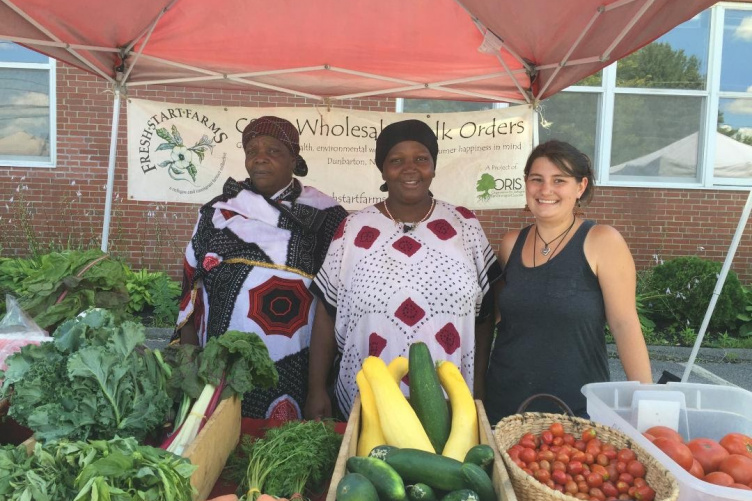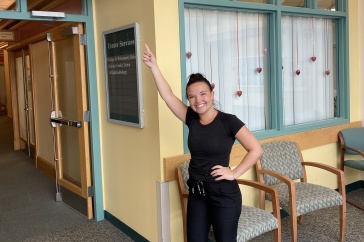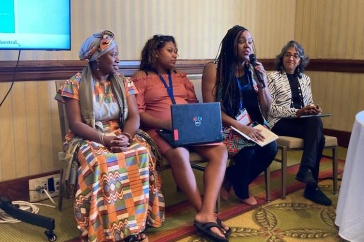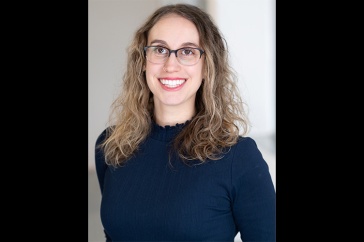
Charlene Higgins '18 (right) helps New American Farmers Cooperative farmers at a local farmer's market.
While crops are grown, community and collaboration roots are developed for new Americans at the New American Farmers Cooperative in Manchester, New Hampshire. Charlene Higgins, a Carsey School of Public Policy graduate student, helped this group of farmers reach their goal to increase their farm cooperative’s impact through her Master in Community Development capstone project.
The New American Farmers Cooperative is a farm enterprise formed by immigrants to achieve shared goals of increased self-sufficiency, profitability and long-term farm sustainability. In partnership with these farmers, Higgins’ capstone project provided technical assistance and training to help build capacity and address the need for effective co-op management and access to consistent, secure and profitable markets.
“The co-op farmers are [now] equipped with additional tools, skills and knowledge to help them successfully reach their self-defined goals within the co-op, and within their communities,” Higgins says. These tools include strategies to attract and retain community supported agriculture (CSA) members, establish wholesale accounts and launch a donation program where individuals can donate a CSA share to a local refugee family in need.
Through this work, Higgins says she sharpened her project management skills, expanded her theoretical framework and learned to think thoughtfully and intentionally about how theory informs practice. She also credits the capstone experience with strengthening her research skills and teaching her how to problem-solve both creatively and critically. Higgins encourages future Carsey School Master in Community Development students to use their capstone project experience to “…not only share your learning with the community you are working with but to learn from them and learn with them while co-creating knowledge and solutions.”
-
Written By:
Sarah Dorner | Carsey School of Public Policy | sarah.dorner@unh.edu | 603-862-0214


















































